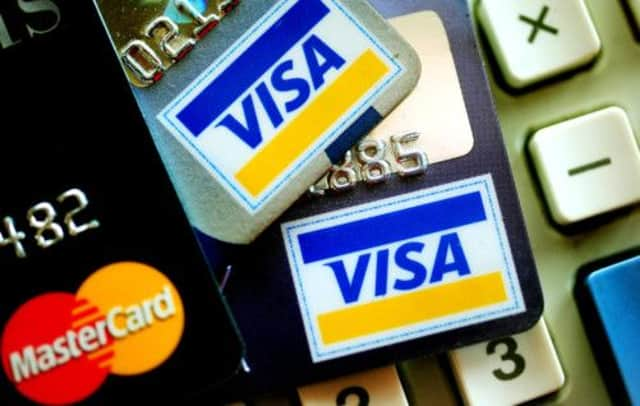False economy: Paying minimum amount off credit card


Buying counterfeit goods and lying on insurance applications to get a cheaper premium completed the top three, while buying cheap loo-roll, forking out for gym memberships and attempting DIY rather than calling in a professional were also in the top-20 worst buys, according to Gocompare.com.
Almost half of people questioned said they believed that going abroad without travel insurance was a false economy, while a similar number said that saving cash on not having their car serviced actually ended up costing them more money in the long run.
Advertisement
Hide AdAdvertisement
Hide AdOther goods which people claimed were not worth saving money on included cheap underwear – specifically bras – or low-cost moisturiser, which 17 per cent of people claimed was not worth the saving.
“No-one wants to waste money paying out more than they need to,” said Gocompare’s customer insight manager Claire Peate. “While most people will be able to quickly recover the money lost on buying fake goods, a cheap pair of shoes or bra, other false economies can have more far-reaching financial consequences.
“Making the minimum repayment on a credit-card bill justifiably tops the list of false economies and can be a very expensive mistake. Credit-card issuers of course add interest to any outstanding balance so the longer you take to repay the debt, the more money you will owe them.”
Almost half of those surveyed said it was not worth lying on an application for travel insurance to get a cheaper premium – doing so could invalidate the policy – while a third said they would prefer to pay out for breakdown cover for their car than find themselves stranded.
Ms Peate added: “To get a cheaper deal, it may be tempting to provide incorrect or misleading information to insurance companies. But this false economy can leave you seriously out of pocket, invalidate your insurance and make it harder for you to get cover in the future.”
However, while more than half of those surveyed said they had been caught out by buying cheap products, wasting both time and money, it did not put everyone off. Some 49 per cent readily admitted that they still looked for the cheap and cheerful option.
Paul Crayston, spokesman for Money Advice Trust Scotland, said: “In some ways, it is good that people are trying to make savings where they are spending their money, but sometimes it takes a bit of thinking about and working out, to make sure that they are spending their money in the right places and not making false economies.
“The best way to do it is to write down everything you are spending so you can see where your money is going and where you might have some left over to do things such as paying off extra on your credit-card bill, which could save you money in the long run.”